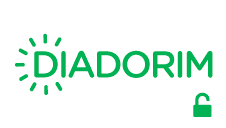Inteligência Artificial Generativa na Educação
Potenciais, Desafios e Implicações Críticas para os Letramentos no Sul Global
DOI:
https://doi.org/10.47677/gluks.v25i02.545Palavras-chave:
Inteligência Artificial, Educação, IA Generativa, Letramentos Digitais, Sul Global.Resumo
Este artigo analisa criticamente as transformações provocadas pela Inteligência Artificial (IA) Generativa na educação, com especial atenção aos impactos sobre as práticas de letramento e a formação docente no Sul Global. Inicialmente, apresenta-se uma contextualização histórica e ontológica da IA, destacando sua emergência como tecnologia linguística e suas implicações socioculturais, especialmente no Brasil. Em seguida, discute-se a perspectiva ciber-social como alternativa ao discurso hegemônico do “hype” tecnológico, enfatizando possibilidades de complementaridade entre humanos e máquinas. A análise foca também nos desafios enfrentados pelos educadores frente à adoção da IA Generativa, incluindo questões éticas, pedagógicas e infraestruturais. Por fim, o artigo propõe uma reflexão crítica sobre as potencialidades e limites da IA Generativa como tecnologia de suporte à aprendizagem, particularmente no que tange à reconfiguração das práticas de escrita e à personalização do ensino. Conclui-se que, para além da necessidade de adaptação às novas tecnologias, a educação deve pautar-se por uma abordagem crítica, criativa e situada dessas tecnologias, a fim de promover letramentos emancipatórios e socialmente justos no contexto do Sul Global.
Downloads
Referências
BEBERMAN, Max. An emerging program of school mathematics: The Inglis Lecture. Cambridge, MA: Harvard University Press, 1958.
BENDER, Emily M.; HANNA, Alex. The AI Con: How to Fight Big Tech's Hype and Create the Future We Want. Harper, 2025. 286 p.
BLOOM, Benjamin S. The 2 sigma problem: the search for methods of group instruction as effective as one-to-one tutoring. Educational Researcher, v. 13, n. 6, p. 4–16, 1984.
HOLANDA, Sérgio Buarque de. Raízes do Brasil. [Reimpressão]. São Paulo: Companhia das Letras, 2015. 256 p. Publicado originalmente em 1936.
CHUN, Wendy Hui Kyong. Updating to Remain the Same: Habitual New Media. Cambridge: The MIT Press, 2017.
COPE, Bill; KALANTZIS, Mary. Towards education justice: multiliteracies revisited. In: ZAPATA, Gabriela C.; KALANTZIS, Mary; COPE, Bill (ed.). Multiliteracies in international educational contexts: towards education justice. London: Routledge, 2023. p. 1–33.
COPE, Bill; KALANTZIS, Mary. On Cyber-Social Learning: A Critique of Artificial Intelligence in Education. In: KOURKOULOU, Theodora et al. (org.). Trust and Inclusion in AI-Mediated Education: Where Human Learning Meets Learning Machines. Cham CH: Springer, 2024a. p. 3-34. DOI: https://doi.org/10.1007/978-3-031-64487-0_1.
COPE, Bill; KALANTZIS, Mary. Platformed Learning: Reshaping Education in the Era of Learning Management Systems. In: THOMAS, Duncan A.; LATERZA, Vito (ed.). Critical EdTech Studies and Digital Platforms in Higher Education: Varieties of Platformisation. London: Palgrave Macmillan, 2024b.
COPE, Bill; KALANTZIS, Mary; TZIRIDES, Anastasia O. Meaning without borders: from translanguaging to transposition in the era of digitally-mediated meaning. In: GROHMANN, Kleanthes K. (ed.). Multifaceted multilingualism. Amsterdam, NL: John Benjamins, 2024. p. 329–370. DOI: https://doi.org/10.1075/sibil.66.13cop.
CORTIZ, Diogo. 'Você não será substituído pela IA': por que você deveria desconfiar disso. Tilt, UOL, 18 maio 2025. Coluna de Diogo Cortiz. Disponível em: https://www.uol.com.br/tilt/colunas/diogo-cortiz/2025/05/18/voce-nao-sera-substituido-pela-ia-por-que-voce-deveria-desconfiar-disso.htm. Acesso em: 26 maio 2025.
COSTA, Kleyton da; ALTERMAN, Enio. IA, sociedade e meio ambiente: uma abordagem a partir de sistemas complexos. Understanding AI, 2025. Disponível em: https://understandingai.iea.usp.br/nota-critica/ia-sociedade-e-meio-ambiente-uma-abordagem-a-partir-de-sistemas-complexos/. Acesso em: 21 maio 2025.
FRASER, Nancy. Capitalismo Canibal: como nosso sistema está devorando a nossa democracia, o cuidado e o planeta e o que podemos fazer a respeito disso. São Paulo: Autonomia Literária, 2024.
KALANTZIS, Mary; COPE, Bill. Literacy in the Time of Artificial Intelligence. Reading Research Quarterly, v. 60, n. 1/e591, 2025. DOI: 10.1002/rrq.591
KAUFMAN, Dora. Linguagem, identidade e IA: os riscos da dominância do inglês nos modelos generativos. Época Negócios, 20 jun. 2025. Disponível em: https://epocanegocios.globo.com/colunas/iagora/coluna/2025/06/linguagem-identidade-e-ia-os-riscos-da-dominancia-do-ingles-nos-modelos-generativos.ghtml. Acesso em: 21 jun. 2025.
KWET, M. Digital colonialism: US empire and the new imperialism in the Global South. Race & Class, London, v. 60, n. 4, p. 3-26, 2019. DOI: 10.1177/0306396818823172.
LUKE, Allan. AI and the Deskilling of Teachers’ Work. Australian Journal of English Education, 2025. No prelo.
MIAO, Fengchun; CUKUROVA, Mutlu. AI Competency Framework for Teachers. Paris: UNESCO, 2024. DOI: 10.54675/ZJTE2084.
NEW LONDON GROUP. A Pedagogy of Multiliteracies: Designing Social Futures. Harvard Educational Review, Cambridge, MA, v. 66, n. 1, p. 60-92, 1996. DOI: 10.17763/haer.66.1.17370n67v22j160u.
NOTHIAS, Toussaint. An intellectual history of digital colonialism. Journal of Communication, [s. l.], v., n., p., 2025. DOI: 10.1093/joc/jqaf003. Disponível em: https://doi.org/10.1093/joc/jqaf003. Acesso em: 21 jun. 2025.
SPERLING, Katarina et al. In: Search of Artificial Intelligence (AI) Literacy in Teacher Education: A Scoping Review. Computers and Education Open, v. 6, n. 100169, p. 1-13, 2024. DOI: 10.1016/j.caeo.2024.100169.
TZIRIDES, Anastasia O. et al. Generative AI in Education: Reflections from Application with Student Work. In: KOURKOULOU, Theodora et al. (ed.). Trust and Inclusion in AI-Mediated Education: Where Human Learning Meets Learning Machines. Cham: Springer, 2024a. p. 287-302. DOI: 10.1007/978-3-031-64487-0_13.
UNESCO. Global Report on Teachers: Addressing Teacher Shortages and Transforming the Profession. Paris: International Task Force on Teachers for Education, 2024.
VANDEHEI, Jim; ALLEN, Mike. Behind the Curtain: A white-collar bloodbath. Axios, 28 maio 2025. Disponível em: https://www.axios.com/2025/05/28/ai-jobs-white-collar-unemployment-anthropic?utm_source=newsletter&utm_medium=email&utm_campaign=newsletter_axiosam&stream=top. Acesso em: 31 maio 2025.
WANG, J.; FAN, W. The effect of ChatGPT on students’ learning performance, learning perception, and higher-order thinking: insights from a meta-analysis. Humanities & Social Sciences Communications, [S. l.], v. 12, n. 621, 2025. Disponível em: https://doi.org/10.1057/s41599-025-04787-y. Acesso em: 21 jun. 2025.
Downloads
Publicado
Como Citar
Edição
Seção
Licença
Copyright (c) 2025 Gláuks - Revista de Letras e Artes

Este trabalho está licenciado sob uma licença Creative Commons Attribution 4.0 International License.














